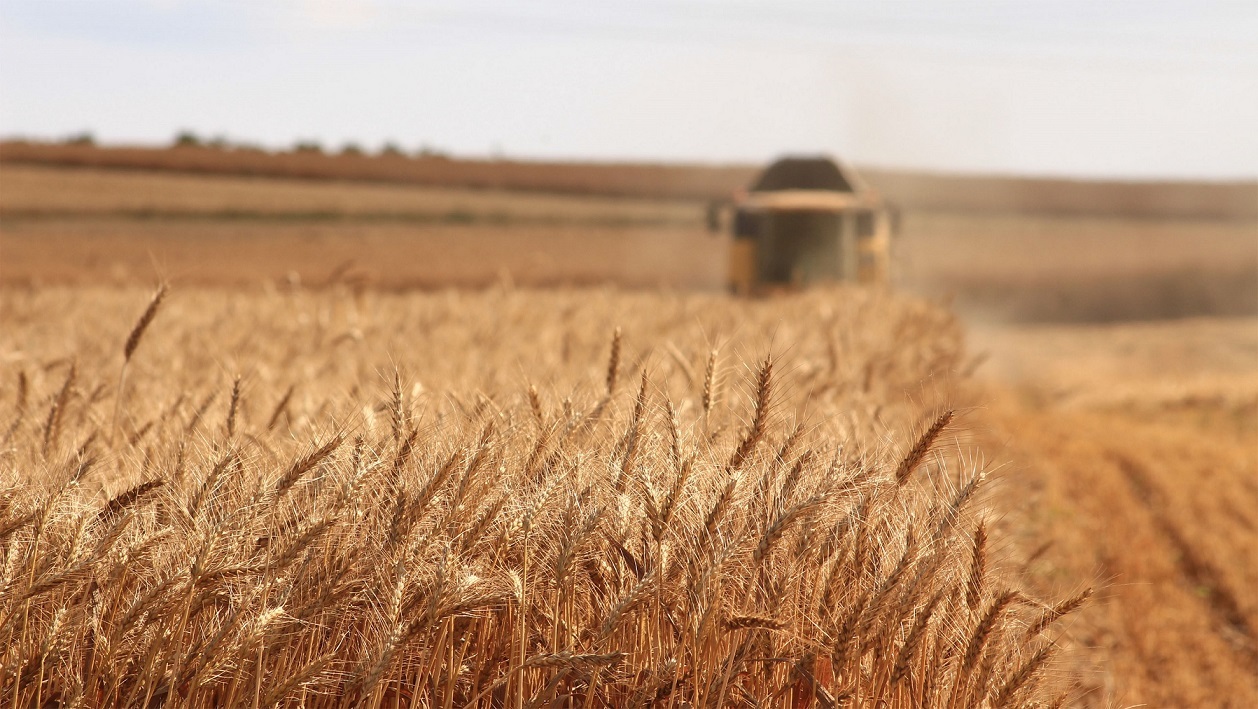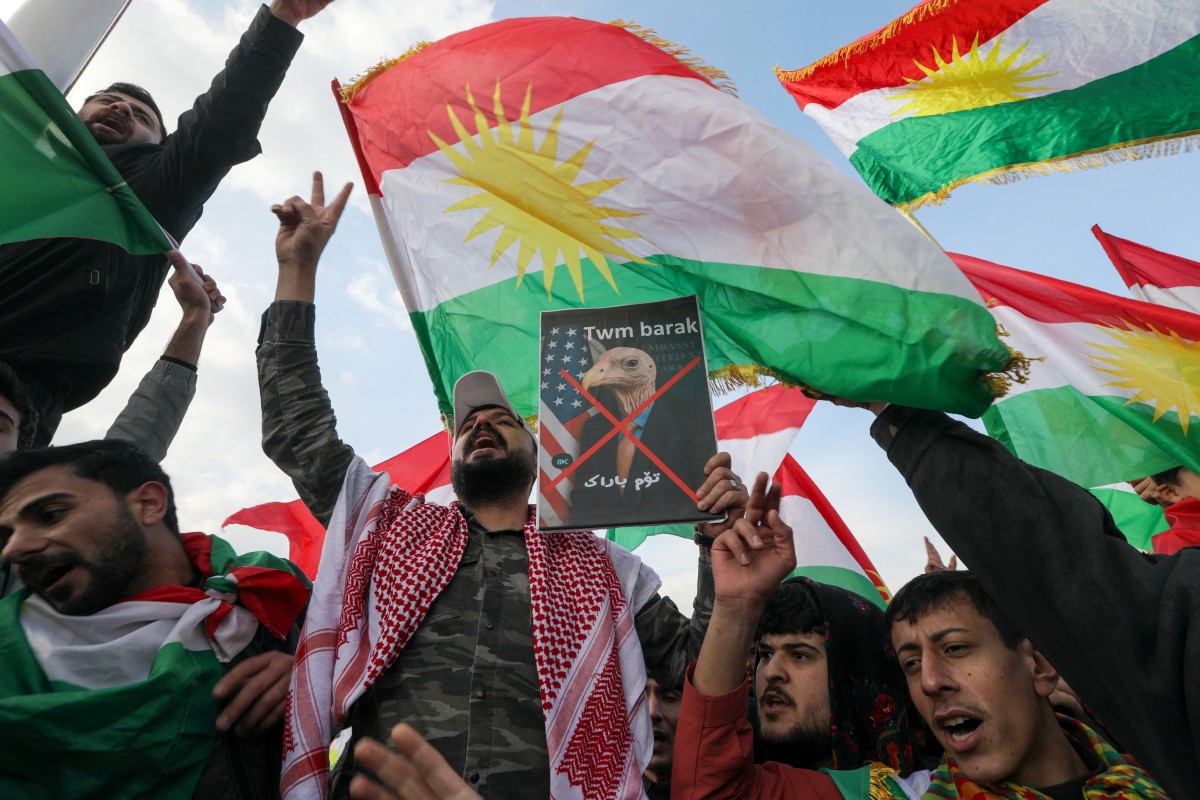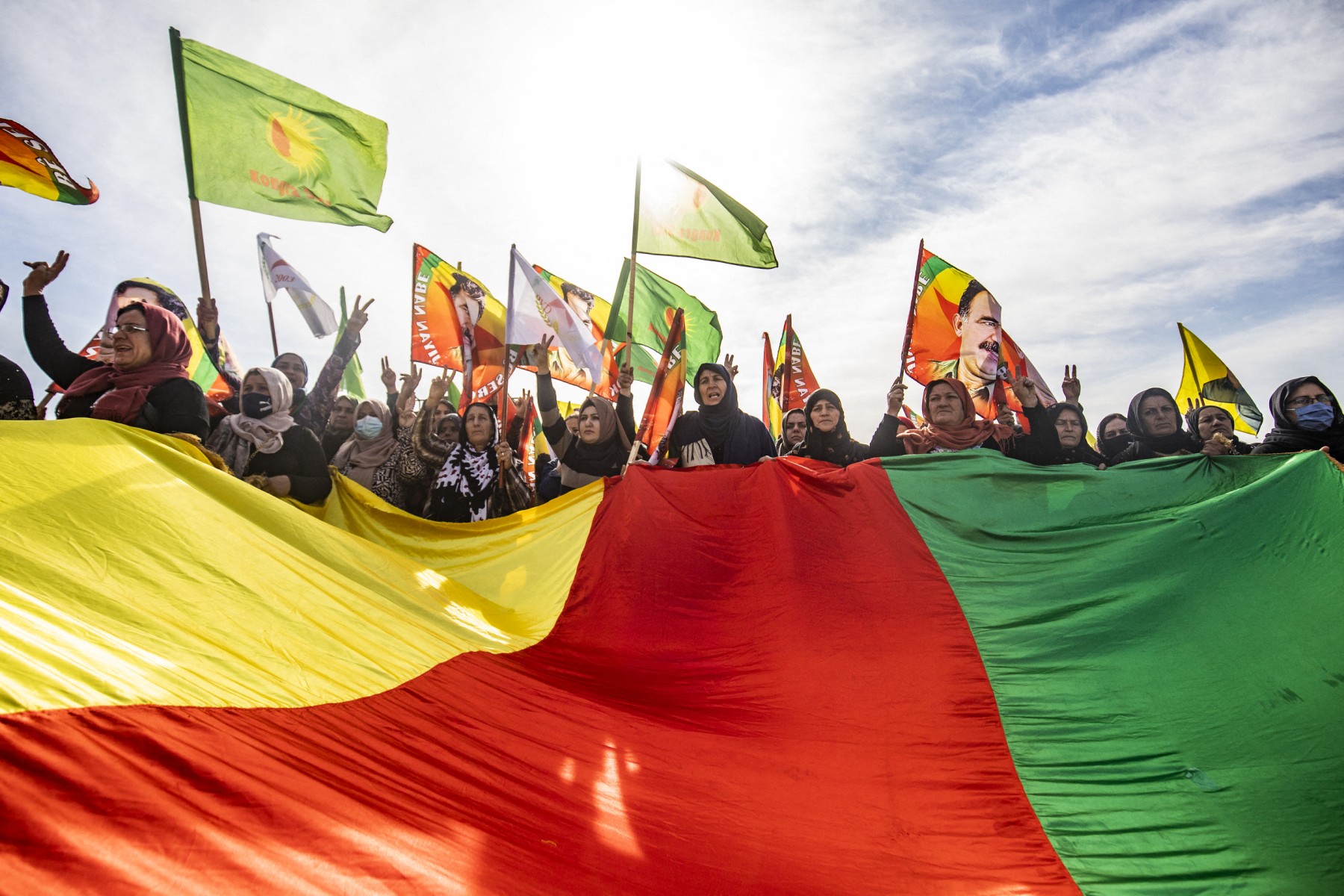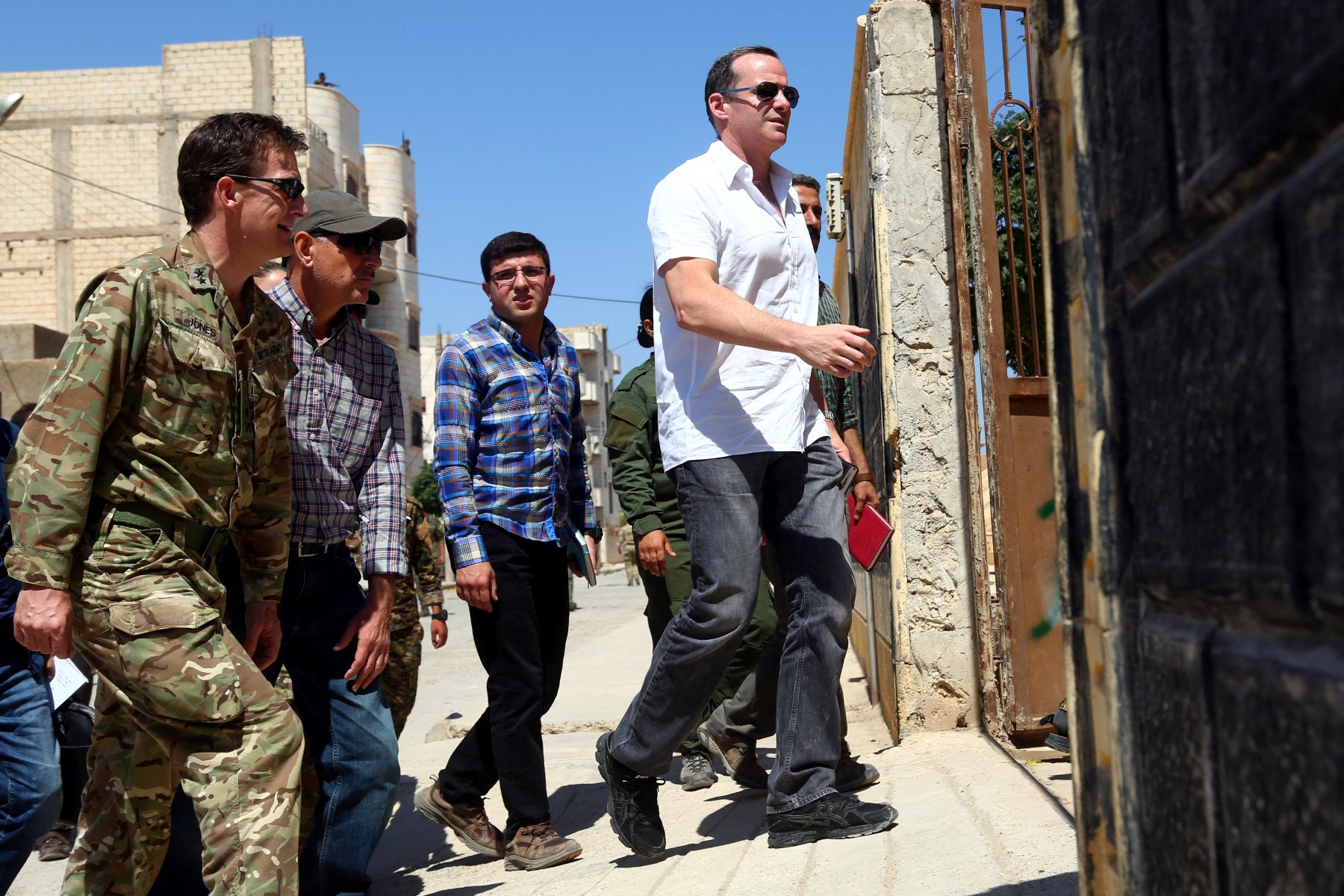Agriculture in Rojava and the Making of a Decolonial Future
This article is co-authored by Joost Jongerden & Necmettin Türk
How a grassroots revolution in northern Syria is redefining democracy, ecology, and decolonization from the ground up.
When the Syrian civil war fractured the authority of the central state, a new kind of revolution took root in the country’s north. In the Kurdish-majority regions known as Rojava, communities seized the opportunity not to build a new state, but to build a new society based on self-administration. Much of the existing scholarship on Rojava has focused on this network of self-organized communes and regions, particularly in relation to questions of recognition, namely the development of a governance model that is inclusive of various cultural, ethnic, and religious communities. Yet far less attention has been paid to the decolonization of Rojava’s agrarian economy—a transformation that is equally fundamental to the region’s broader project of liberation.
Decolonization
On the night of July 19, 2012, the People’s Protection Units (YPG) took control of Kobanî, a border town of 50,000. The event sparked a wave of uprisings that spread across northern Syria. Out of this upheaval emerged the Rojava Autonomous Administration—a network of local councils that organized governance across the region—renamed in 2018 as the Autonomous Administration of North and East Syria (AANES). This marked a decisive break from decades of Arab nationalist colonial politics in Rojava.
As the Syrian state withdrew, its centralized model of agricultural modernization—rooted in monocropping and extractive practices—collapsed along with it. In its wake, cooperatives and local processing facilities emerged, and farming shifted from serving national export markets to meeting the needs of local communities.
What unfolded was more than a practical economic response to the state’s withdrawal—it was a process of decolonization. By reclaiming control over land and water, the people of Rojava began to dismantle the colonial logic of dependency that had long defined their relationship to the Syrian state.
Colonization
Through central state-building in the region, Rojava was transformed into a supplier of raw crops —especially wheat, barley, and cotton —for processing elsewhere in the country.
Over the past decades, the Syrian regime deployed agricultural modernization as a tool of internal colonization in Rojava. Development initiatives such as dam construction, centralized planning, state farms, and extensive monocultures were not simply technocratic efforts to increase productivity, but mechanisms for expanding central state control. Around projects like the Taqba Dam, the regime built an infrastructure of governance that bound local landscapes and communities to the logics of the central state. In this sense, agricultural modernization functioned as a mode of colonial development: it reorganized land, labor, and water in ways that extended state control.
Through central state-building in the region, Rojava was transformed into a supplier of raw crops —especially wheat, barley, and cotton —for processing elsewhere in the country. This establishment of an economic center–periphery relationship is a form of colonial underdevelopment: it extracts resources while preventing the region from developing its own self-sustaining economy.
Moreover, land reclamation and redistribution facilitated the transfer of Kurdish-owned land to Arab families loyal to the Baʿath Party under the Arab Belt policy, a demographic engineering project designed to alter the ethnic composition of northern Syria and consolidate Arab control along the Turkish border.
Diverse Agroecologies
With the state gone, the autonomous administration identified three interrelated fronts to decolonize the region through a profound agrarian restructuring: 1) replacing centralized rule with local control, 2) reversing economic dependency through diversified production and local processing, 3) building coexistence based on equality rather than ethno-national hierarchy.
In contrast to the former monocropping system, crop diversification became a cornerstone of agricultural policy. Fields once dominated by cotton now produce a wide range of vegetables, pulses, and agroforestry crops, including olives, pistachios, figs, and grapes. Chickpeas, lentils, and beans—previously absent from local farming—now cover roughly 25% of cooperative farmland (Türk and Jongerden 2024), while the planting of hundreds of thousands of fruit-bearing trees has further strengthened regional food security (Azize Aslan, 2023). Investments in rainwater harvesting and drip irrigation have enhanced local control and water efficiency, marking a decisive shift away from Syria and Turkey’s centralized, monopolistic water-management regimes toward a community-based, sustainable system.
With none of the Kurdish cities equipped with processing facilities, building local processing capacity emerged as a central challenge—a point illustrated by Mehran Ahmed, Co-Chair of the Agriculture and Irrigation Council: “We took all 30,000 tons of cotton from the farmers in North Eastern Syria last year and removed the seeds, but we couldn’t process and sell it. Another example—our farmers decided to plant sunflowers, but after the harvest, how will we get oil from the products? [i]”
That question highlights the core issue: transitioning from a dependent, extraction-based economy to a self-sustaining system built on local processing and value creation. To this end, the Autonomous Administration has, over the past decade, established wheat, flour, bulgur, pasta, and lentil factories, along with an olive oil production facility, bringing the region close to self-sufficiency. Looking ahead, plans are in place to expand within the next five years into sugar, sunflower, soybean, and cotton-processing, as well as textile production.
This progress extends beyond crops and now includes dairy production—the Zozan factory in Derik, for example, processes six tons of milk daily into cheese, butter, yogurt, and buttermilk. By building local production and processing capacities, AANES is not merely addressing past neglect; it is reversing a colonial legacy of de-development and laying the foundations for a just and ecological economy. However, this process remains under threat. In October 2024, Turkey bombed the Zozan factory, which can be seen as an attempt to undermine Rojava’s ongoing project of decolonization.
Challenges
A survey from 2024 shows that nearly 70% of the respondents prefer individual land distribution, while only 24% favor cooperatives (Türk and Jongerden, 2024)
The Kurdish movement prioritizes cooperative and communal forms of agrarian development over peasant- or household-based models. Yet, efforts to communalize natural resources—especially land and water—have met resistance from peasants. A survey from 2024 shows that nearly 70% of the respondents prefer individual land distribution, while only 24% favor cooperatives (Türk and Jongerden, 2024). The Kurdish movement now faces a paradox: what happens when the idealization of cooperatives collides with peasant skepticism, making implementation increasingly difficult?
This tension is not new; rather,it echoes a century-old debate between Lenin and Chayanov (Ploeg, 2013). Lenin envisioned collective farming and nationalized land as the foundation of socialist transformation, emphasizing the replacement of small-scale peasant production with large, state-managed cooperatives. Chayanov, by contrast, argued that the peasant household was not an obstacle to socialism but a vital unit of social and economic life—one capable of self-organization and moral economy when freed from exploitation.
The same question—top-down collectivization or bottom-up autonomy—now plays out in Rojava, where the movement’s revolutionary ideals sometimes clash with the everyday realities of rural life. How to balance ideological commitment to communalism with peasant desires for autonomy and security remains one of the most pressing dilemmas in Rojava’s experiment with decolonial agrarian reform.
Another enduring challenge lies in the deep scars left by the Baʿath regime’s Arabization policies. Beginning in the 1970s, thousands of Arab families were resettled in Kurdish-majority areas and granted confiscated Kurdish lands. When the Autonomous Administration was formed decades later, it faced a sensitive dilemma: should these lands be returned to their original Kurdish owners?
Many Kurds see the policy as a continuation of de-Kurdification, while some Arab settlers acknowledge the injustice of the Arab Belt project but argue they should not be punished for the regime’s actions.
The administration chose restraint. Rather than displacing Arab families—many of whom have lived there for generations—it opted not to reclaim the land. Instead, state-owned land was redistributed not only to Kurds with ancestral claims but also to landless families of all backgrounds. This decision embodied the movement’s vision of the “democratic nation”: a society built on coexistence and pluralism rather than ethnic exclusivity.
Still, the issue remains deeply contentious. Many Kurds see the policy as a continuation of de-Kurdification, while some Arab settlers acknowledge the injustice of the Arab Belt project but argue they should not be punished for the regime’s actions. These historical wounds are further aggravated by war, drought, and the Turkish embargo. Since Turkey’s occupations of Afrin and Serêkaniyê, emigration has surged—particularly among Kurds, Yazidis, and Assyrians, changing the region’s demography. “No one feels safe except the Arabs,” said one Yazidi farmer. “If Turkey or the regime returns, we’ll be the first they slaughter.”
Despite these tensions, the Autonomous Administration has resisted reverting to nationalist reflexes. Reviving an ethnic retropolitics—seeking to restore an idealized past of cultural homogeneity in the present—would contradict the movement’s core vision: building a shared and democratic future.
Toward a Post-State Future
In a world where decolonization too often means merely changing the flag, Rojava offers a different horizon. Its struggle seeks to reclaim life itself—from colonial domination and the violence of the state. Despite the belligerent politics of both the Syrian regime and Turkey, Rojava stands as a living example of decolonial possibility. Despite its struggles and contradictions, it embodies a radical conviction: that liberation lies not in the seizure of power, but in the transformation of relationships—between people, nature, and the future.
This article is based on:
Türk, N. & Jongerden, J. (2024). “Decolonisation Agriculture: Challenging Colonisation through the Reconstruction of Agriculture in Western Kurdistan (Rojava).” Third World Quarterly, 45(11), 1738–1757.
References
Aslan, Azize (2023). Anticapitalist Economy in Rojava: The Contradictions of Revolution in the Kurdish Struggle. Toronto: Daraja Press.
Ploeg, J. D. van der (2013). Peasants and the Art of Farming: A Chayanovian Manifesto. Winnipeg: Practical Action Publishing.
Türk, N. & Jongerden, J. (2024). “Decolonisation Agriculture: Challenging Colonisation through the Reconstruction of Agriculture in Western Kurdistan (Rojava).” Third World Quarterly, 45(11), 1738–1757.
[i] Mehran Ahmed, 21 November, 2023.
Joost Jongerden
Joost Jongerden (PhD) is an Associate Professor of Rural Sociology at Wageningen University, the Netherlands. His research focuses on forced migration, rural development, and political and violent conflict in the Kurdistan region, with particular attention to dispossession, displacement, and how people actively pursue alternative futures—an approach he describes as Do-it-Yourself Development.




